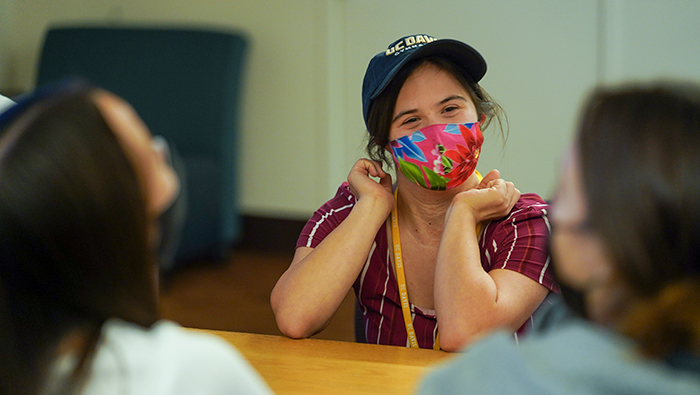
Beth Foraker ’86, Cred. ’87, teaches a first-year seminar called “Disability Studies, Neurodiversity, Mentorship and How To Be An Ally” this quarter. Seminar participants learn how to mentor and ally with students in the Redwood SEED Scholars program, a new residential program for students with intellectual disabilities at UC Davis.
The topic is one that she is very passionate about, as her son, Patrick, has Down syndrome. “When you’re born with an intellectual disability, immediately the world just has low expectations for you,” said Foraker. As the co-founder of the Redwood SEED Scholars Program, she aims to get rid of this preconceived notion.
Seminar participants will use a “mentor toolkit” and undertake neurodiversity studies, learn about the history of those with intellectual disabilities and aim to better understand the systemic educational barriers people with intellectual disabilities face.
Some of UC Davis’ current mentors come from campus organizations such as Best Buddies, which strives to normalize friendships between those with and without intellectual disabilities. Others are students who have siblings with intellectual disabilities. Some post-doctorate students in psychology and neuroscience are also working as mentors. Foraker said she hopes to recruit around 10 more from her first-year seminar this quarter. Mentor hopefuls will go through special training to guide the Redwood SEED Scholars.
But how can the average student be an ally?
According to Foraker, one of the most important traits an ally can have is an equity mindset. “You have to see this person as an equal member of society who has standing and value as a student here.”
An ally should also be okay with discomfort. Things won’t always be black and white when being an ally for those with intellectual disabilities. There is a lot of grey area, and that grey area can bring about discomfort and uncertainty.
A good ally will be able to seek out needs and solve those needs with creative approaches. Foraker mentioned that one of her mentors came up with guided meditation as a solution for stress management, which helped one student a lot. “It’s really cool to watch,” said Foraker.
Finally, an ally is willing to be a part of a student’s network and will even work to expand that network. “That’s definitely being an ally,” said Foraker, “being willing to welcome them into your network of friends.”